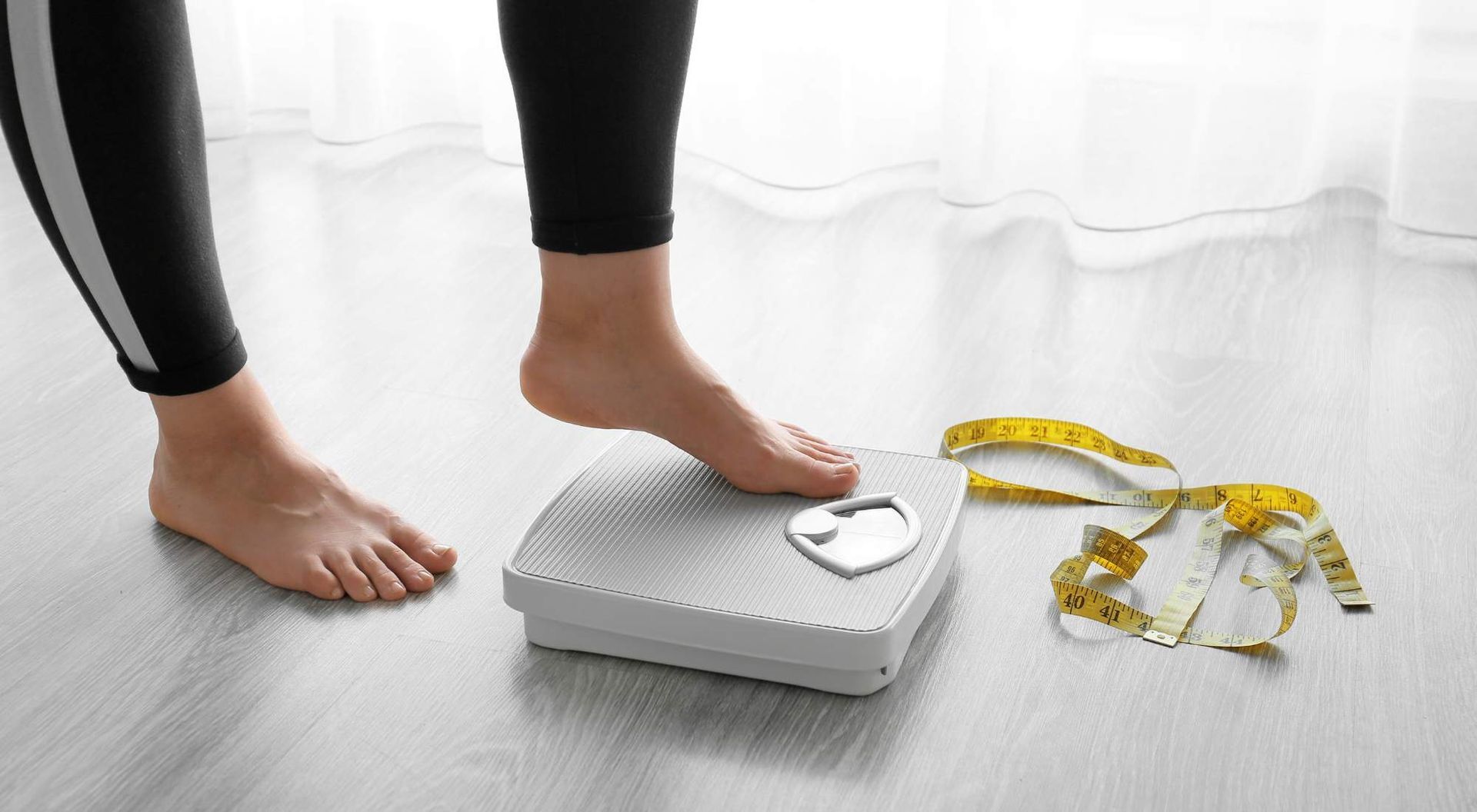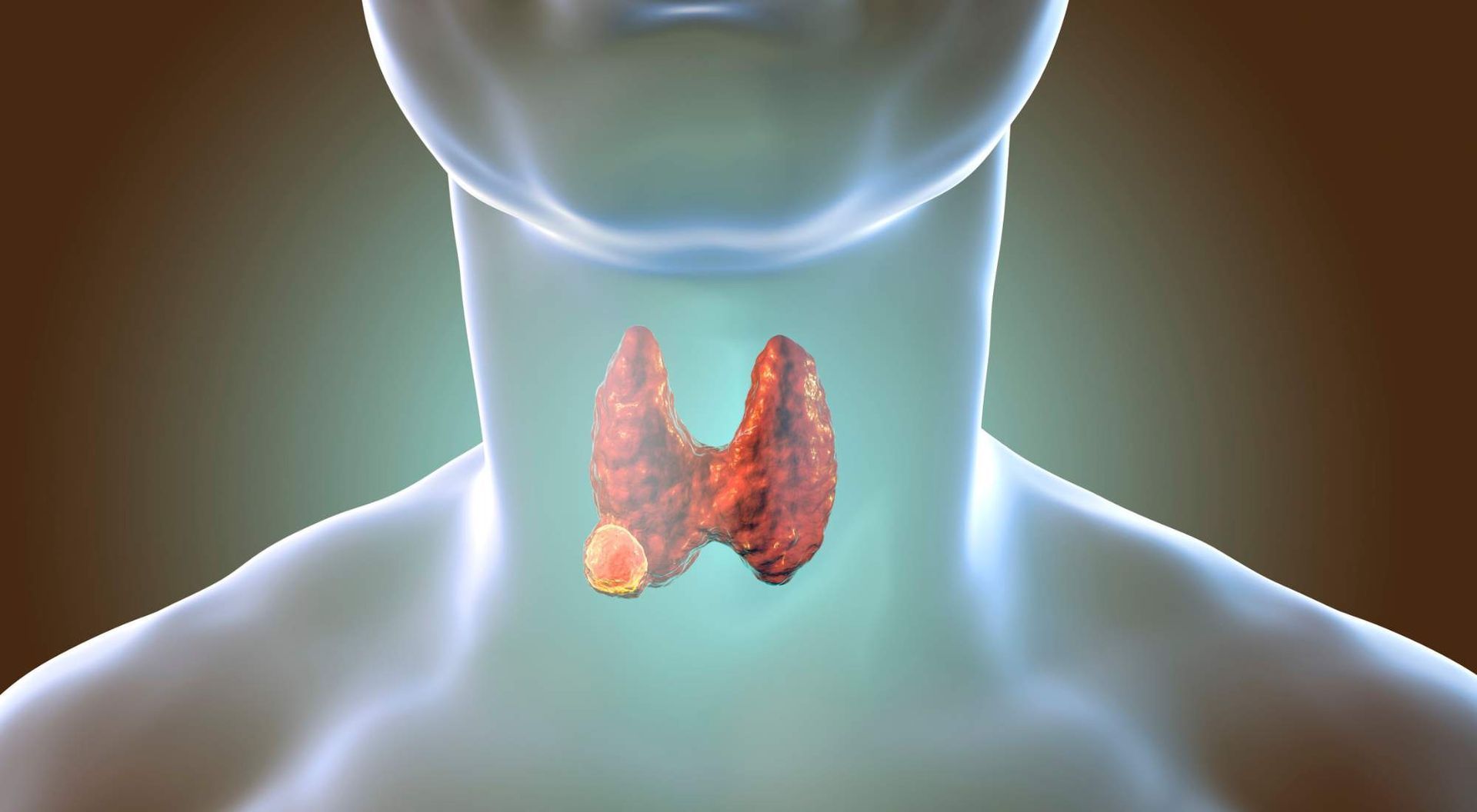Ozempic, Thyroid Problems, and Natural Options for Maintaining a Healthy Weight
"The content below is not intended to be a substitute for professional medical advice, diagnosis, or treatment. Always seek the advice of your physician or other qualified health provider with any questions you may have regarding a medical condition."
We know managing weight with thyroid issues can be a balancing act. Hormonal imbalances may result in big challenges when it comes to losing weight and achieving the desired numbers on the scale.
The good news? You are not alone
Let our team of health professionals provide you with the guidance and support needed to achieve your weight goals.
In this article, we will break down how thyroid conditions affect your metabolism and weight, and explain how medications like Ozempic can help you safely achieve your ideal weight.
Table of Contents
Understanding the Challenge of Weight Management With Thyroid Problems
Managing weight can be hard for people with thyroid problems because of the thyroid's big role in controlling metabolism.
One of the biggest symptoms when the thyroid is not working correctly is weight gain or trouble losing weight. When your thyroid is underactive, the body does not produce enough thyroid hormone, which can slow down metabolism. A slower metabolism translates to weight gain, even if your diet is balanced and you have an active lifestyle.
Besides medication, treating a thyroid condition usually requires balancing your metabolism. Working with doctors and our professionals at HealthierU can help create a plan that makes it easier and healthier to manage weight while living with a thyroid-related diagnosis. Let us help you get started today.
How Does Ozempic Help With Weight Loss?
Our body naturally produces glucagon-like peptide 1, a hormone that helps our body regulate blood sugar and appetite.
Ozempic, generically known as semaglutide, mimics this hormone and helps reduce hunger by emptying your stomach slowly and making you feel fuller for longer. It also enhances insulin sensitivity, which allows the body to use sugar more efficiently. These two factors may make it easier for people to consume fewer calories and may even promote weight loss.
Ozempic is not a magic solution. It should be used as part of a comprehensive weight management plan with a balanced diet and exercise under professional supervision.
Can You Take Ozempic With Thyroid Problems?
The short answer is yes!
Researchers have found that it is generally safe for patients with thyroid conditions to take Ozempic. While Ozempic does not interact with the most common thyroid medications and does not affect the cells producing thyroid hormone, it is always recommended to consult a health professional before initiating any new treatment.
Many different thyroid conditions can cause a variety of symptoms throughout the body. Below, we will explore these symptoms in detail, addressing the most frequent diagnosis individually.
Ozempic and Hypothyroidism
So far, researchers agree that Ozempic is generally safe to use on patients with hypothyroidism; however, caution and professional supervision are always suggested.
Medications used to treat hypothyroidism do not interact with Ozempic but your healthcare provider may simply request more frequent bloodwork to monitor your metabolism.
One of the most impactful symptoms of living with hypothyroidism is gaining weight, and Ozempic may help achieve a more desired weight by slowing the emptying of your stomach and, therefore, making you feel fuller longer. Also, it may help control blood sugar by improving the use of insulin in your body.
Ozempic and Hyperthyroidism
Generally, patients with hyperthyroidism do not struggle with gaining weight, so taking Ozempic may not be as appealing as it is for patients with hypothyroidism.
However, if losing weight is your goal, researchers also admit it may be safe so long as you do it under
professional supervision.
Ozempic and Thyroid Cancer
Ozempic has recently gained significant popularity as a medication for weight loss. There is ongoing research studying the side effects of this medication and some even conclude Ozempic is unlikely to increase thyroid cancer.
Nevertheless, we strongly recommend consulting your healthcare provider before starting any new medication. Talk to your trusted professional to ensure you have all the necessary information, including possible side effects, and to confirm that Ozempic is a safe option for you.
Can You Take Ozempic With Thyroid Medication?
Yes! Ozempic does not have interactions with the hormones in charge of making thyroid hormones. Ozempic is safe to take with hypothyroidism and hyperthyroidism medication. Your doctor may request more frequent bloodwork to monitor your hormones and help modify your prescription if needed. Some of the most prescribed medications for thyroid conditions that do not interact with Ozempic are:
- Hypothyroidism:
- Levothyroxine (Euthyrox)
- Desiccated thyroid hormone (Armour Thyroid)
- Hyperthyroidism:
- Methimazole (Tapazole)
- Propylthiouracil
Just Because You Can Take Ozempic With Thyroid Problems, Does That Mean You Should? 7 Natural Ways To Lose Weight With a Thyroid Problem
Now that you know you can take Ozempic with thyroid problems, you may ask yourself, “should I do it?”
The truth is that there are plenty of other natural and holistic methods that can help you achieve your ideal weight and perform as a natural treatment for hypothyroidism at the same time.
At HealthierU, our staff of professionals are looking forward to guiding you in this process and to helping you get well — and stay healthy — naturally with nutrition and lifestyle guidance!
Here are some of our best advice for you to start your natural journey to weight loss while regulating your thyroid hormones:
#1: Limit Carbs and Sugar
Most people cut down, or completely cut off, their carb intake when trying to lose weight.
Nonetheless, carbs are useful for our body, especially our brain. The key to keeping a friendly relationship with carbs while losing weight is to know what type of carbs are the most beneficial for you and the suggested portion sizes. Keep in mind that your daily calorie intake should come 45-65% from carbs, but this varies depending on your age, sex, and activity level.
The best sources of carbs for a weight-loss diet include:
- Fruits (extra tip: when possible, eat the skin of the fruit for extra fiber)
- Nuts or seeds
- Whole grains and starches
- High-fiber vegetables like squash, sweet potato fries, and many other delicious options
#2: Eat a Balanced/Anti-Inflammatory Diet
An anti-inflammatory diet does not have strict rules around what you can and cannot eat. Instead, this diet prioritizes eating a wide variety of healthy nutrient-rich foods that can help boost immunity and reduce the prolonged chronic state of inflammation in the body.
These foods help:
- Prevent cellular stress
- Inhibit inflammatory signals
- Promote healthy microbiota; and
- Prevent surges in blood sugar
Incorporate some of these to start a healthy balanced anti-inflammatory diet:
- Fruits
- Vegetables
- Whole grains
- Legumes
- Healthy fats (e.g., avocado, olive oil)
- Dark chocolate, and more!
#3: Increase Fiber
The benefits of fiber for weight loss — and overall health — are well-known. Studies show that ingesting 30 grams of fiber daily can help you:
- Lose weight
- Lower your body pressure and cholesterol
- Promote the growth of beneficial bacteria in your intestines, and
- Provide many other magnificent benefits to your body
Adding fiber can be easy and delicious. Start by incorporating vegetables, fruits, legumes, cereals, nuts, and seeds into your meals to enjoy the wonderful advantages of having a balanced diet.
#4: Log Your Meals
People who keep track of their meals can lose twice as much weight as people who do not record what they eat throughout the day. Follow these simple recommendations to log all your meals properly:
- Consider not only what you eat, but also what you drink.
- Track the portions you eat.
- Monitor how you were feeling when you ate your meal or snack. Your emotions can have a significant impact on your diet habits.
- Review what you were doing while having each meal or snack. Perhaps you were watching TV or working overtime. Activities can also affect our appetite.
- MOST IMPORTANTLY: Remember to include and analyze the nutrients each meal provides.
You can use apps like My Fitness Pal,
personalized plans (for free!) like the one provided by Mayo Clinic, or simply write it down in journals such as
My Food Diary by the CDC.
#5: Drink Plenty of Water
Did you know that 60% of your body is water?
It only makes sense that drinking plenty of water supports a healthy metabolism since most of your body functions rely on this calorie-free beverage. Adequate water intake daily helps your body work better in a wide range of activities, including losing weight.
As a general rule, women should drink 11 cups of water daily, while men should drink 15. This may vary depending on your weight and height.
These are some of the weight loss effects water can have on your body:
- Naturally reduces appetite
- Stimulates your metabolism
- Helps remove waste and burn fat
- Boosts motivation and reduces stress
#6: Get an Adequate Amount of Quality Sleep
An adequate amount of sleep is crucial for overall health and weight loss.
Sleep aids in the regulation of hormones that control appetite and feeling full after a meal. When you lack enough sleep, the hormonal imbalance can lead to overeating and poor food choices. Lack of sleep also affects metabolism, slowing the body’s ability to burn calories efficiently.
Here are some tips to improve the quality and quantity of your sleep:
- Stick to a sleep schedule (even during your days off!)
- Include physical activity in your daily routine
- Create a bedtime routine
- Prepare a restful and dark environment
#7: Make Exercise a Priority
Besides a balanced diet, daily exercise is another key component of a healthy weight.
An active lifestyle can remarkably help you lose weight and, most importantly, keep it off. Loss of bone density and muscle mass is a normal aging process but can worsen when people lose weight without physical activity.
These are just some of the best exercises for healthy weight loss:
- Swimming
- Hiking
- Walking
- Strength training
- Running
Holistic Nutrition and Lifestyle Guidance With HealthierU To Help You Manage Your Weight and Thyroid Symptoms
At HealthierU, we support you on your journey to better health and weight management. If you are dealing with thyroid issues and want guidance on how to manage your weight safely while helping your hormones balance naturally, we can help.
If you find yourself wondering, “can you take Ozempic with thyroid problems?”, reach out to our team before beginning any treatments. We’ll work with you to create a personalized plan that fits your needs.
Contact HealthierU today, and let’s work together to achieve your wellness goals and take control of your health.
HealthierU
Natural Nutritionist Brooklyn
126 Avenue U
Brooklyn, NY, 11223
(718) 375-4355
Office Hours
- Monday
- Closed
- Tue, Fri
- -
- Wednesday
- - -
- Thursday
- -
- Sat - Sun
- Closed






